Fifteen months ago the BBC News website finally got round to reporting a story that it had previously ignored for seven years:
A SEVEN-YEAR BBC OMISSION FINALLY COMES TO AN END
Until June 28th 2022, BBC audiences had never heard the names Hisham al Sayed or Avera Mengistu.
Nevertheless, a story concerning Avera Mengistu which later emerged in January of this year was not reported by the BBC:
HAMAS VIDEO OF ISRAELI HOSTAGE NOT NEWSWORTHY FOR THE BBC
There is therefore more than a touch of irony in the headline chosen by the BBC News website for a report it published on October 21st: ‘The forgotten Israeli hostages kept by Hamas in Gaza for years’.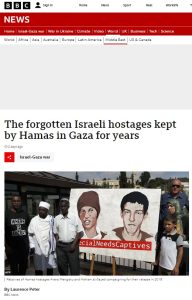
Written by BBC reporter Laurence Peter who describes himself as having “a focus on EU issues and other European news”, that report – which was also published in Spanish – opens as follows:
“The anguish over some 200 people kidnapped by Hamas in its brutal attack on Israel is in the spotlight – but Hamas has been holding at least two Israelis for years.
Very little has been heard about Ethiopian-Israeli Avera Mengistu and Bedouin Arab Israeli Hisham al-Sayed, seized in 2014 and 2015 respectively.
The relatives of two dead Israeli soldiers are also tormented by the fact that Hamas has been holding their remains in Gaza since 2014. Hadar Goldin and Oron Shaul were killed during a war between Israel and Hamas that year.”
Peter goes on:
“Hamas – backed by Iran and regarded by Western nations as a terrorist group – has previously demanded a high price for releasing captive Israelis. They are used as Hamas bargaining chips.”
He does not however bother to clarify that the “high price” demanded by Hamas in rounds of negotiations to free Mengistu and al Sayed and to return the bodies of Oron Shaul and Hadar Goldin has included the release by Israel of convicted terrorists who were rearrested after the 2011 Shalit deal due to their return to terrorist activities. As explained by the Times of Israel in 2020:
“The Hamas terror group on Monday said that a precondition for any prisoner swap deal with Israel was the release of dozens of terror convicts cut loose in a 2011 exchange and rearrested six years ago.
Reports several months ago said significant headway had been made in effort to secure a deal that would see Gaza rulers free two captive Israeli civilians and the bodies of two Israeli soldiers in exchange for Palestinian prisoners.
“The release of the prisoners freed in the 2011 deal is a condition for starting talks on a new prisoner exchange,” said Hamas spokesperson Abdel Latif al-Qanua.”
Further efforts were made to secure the release of the Israelis held hostage by Hamas in 2021.
Laurence Peter goes on to mention the 2011 deal which led to the release of Gilad Shalit after five years in Hamas captivity but again refrains from informing readers that many of those released at the time returned to terrorism, including including Yahya Sinwar, who is now the leader of Hamas in the Gaza Strip.
“After secret negotiations in 2011 Israel got the abducted soldier Gilad Shalit back – but in exchange for 1,027 Palestinian prisoners held in its jails.
Israel is now determined to wipe out Hamas and is inflicting huge casualties and damage on Gaza with air strikes. So any new prisoner swap would be both difficult and controversial. As the Gaza death toll mounts, Palestinian fury at Israel intensifies.”
Peter fails to explain to BBC audiences that one of the main reasons why “any new prisoner swap” would be “controversial” is because the Israeli public has bitter experience of convicted terrorists released in exchange for hostages returning to deadly terror activities.
He does however devote three paragraphs of his report to promotion of the notion that “the lack of progress” in negotiations for the release of Avera Mengistu and Hisham al Sayed is attributable to “discrimination in Israeli society towards Ethiopian Jews and Bedouin Arabs”.
Notably, while Laurence Peter found it appropriate to amplify speculation placing the onus for the failure to repatriate the Israeli hostages on perceived prejudices in Israeli society, his report includes no mention whatsoever of mention the lack of significant intervention in the cases of Mengistu and al Sayed from many human rights organisations, the UN and the international community.
Neither does he make any effort to enhance audience understanding by addressing the relevant topic of ideologies in parts of Palestinian society which have led to the holding of two mentally ill civilian hostages for years on end without Red Cross access and which lie behind the indiscriminate and indescribably brutal murders of hundreds of Israeli civilians (to which he refers using only the two-word phrase “brutal attacks”) and the kidnapping of babies, children and senior citizens with the aim of securing yet another ‘get out of jail card’ for convicted terrorist murderers.

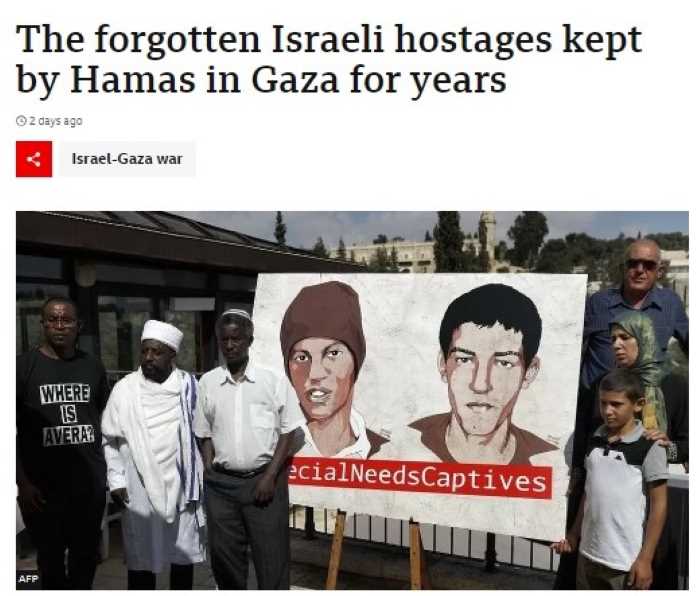
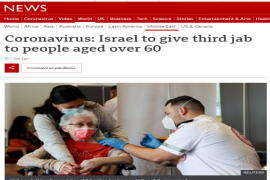
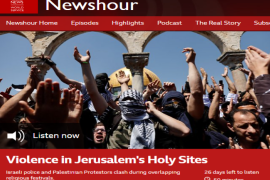
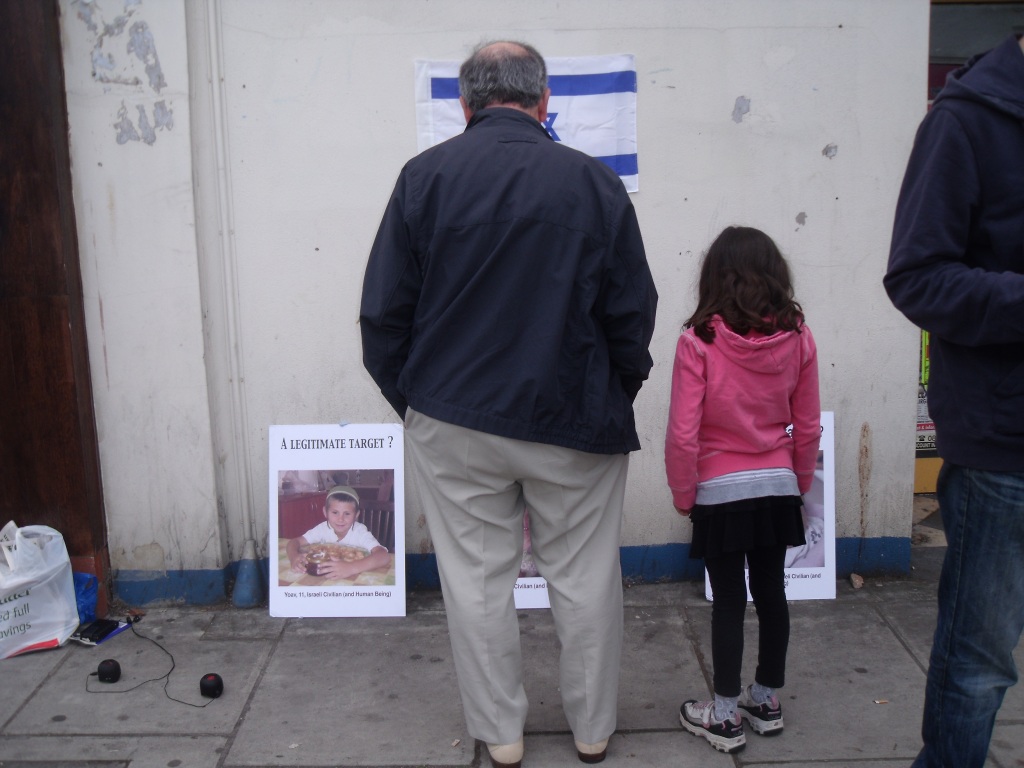
https://www.telegraph.co.uk/world-news/2023/10/25/israel-and-the-united-nations-a-toxic-76-year-relationship0/
(Daily Telegraph 25.10.2023)
The whole article is a little light on detail, but this is glaring:
The Arab offensive, far from improving the lives of Palestinians, resulted in more than 700,000 fleeing their homes in what they refer to as the great Nakba, or catastrophe. In the three years following the war, close to a million Jews migrated from around the world to settle in Israel, including many from surrounding Muslim countries.
No mention that most Jews were not emigrating voluntarily, but were forcibly ejected from lands where they had lived for nearly 2 millennia.
Cheers